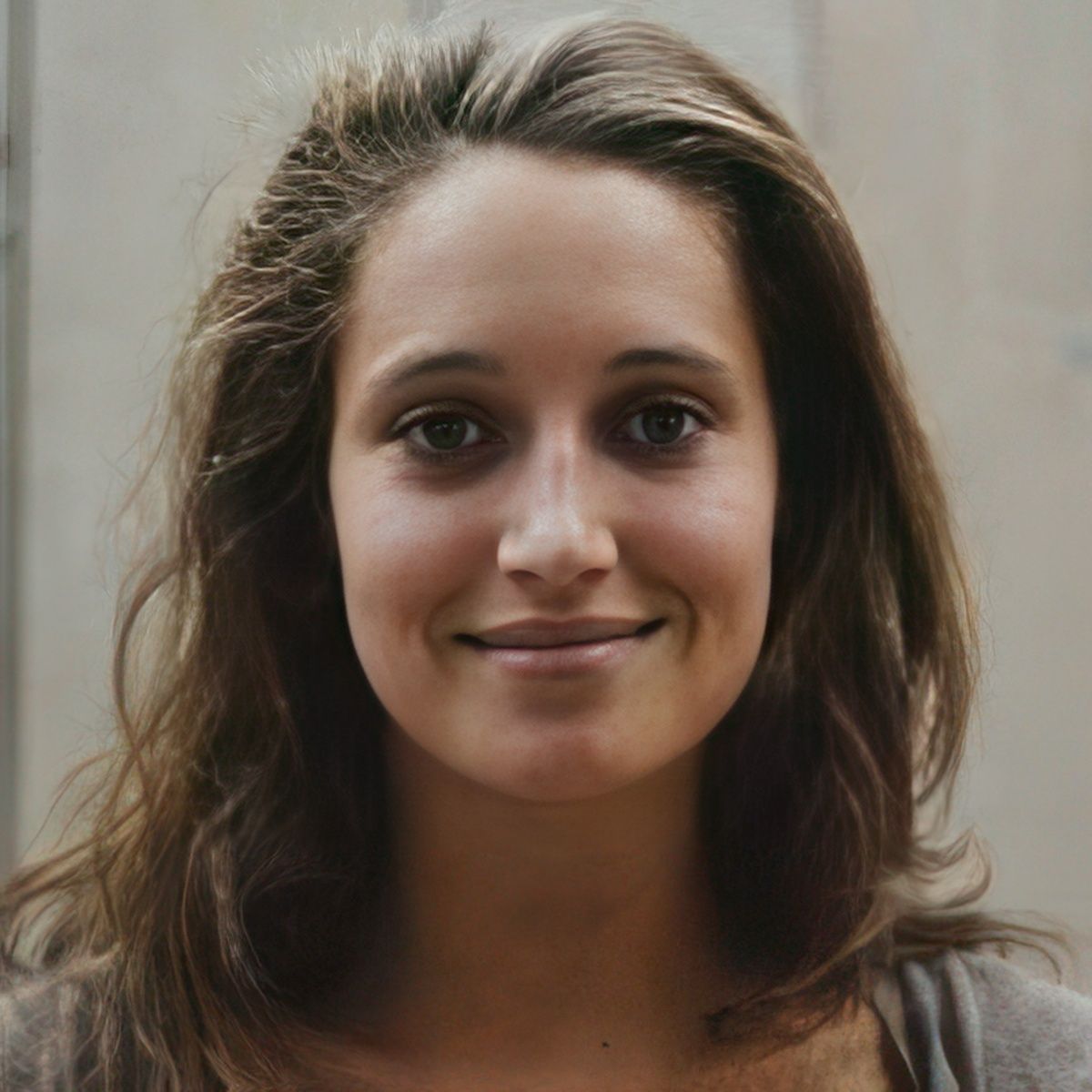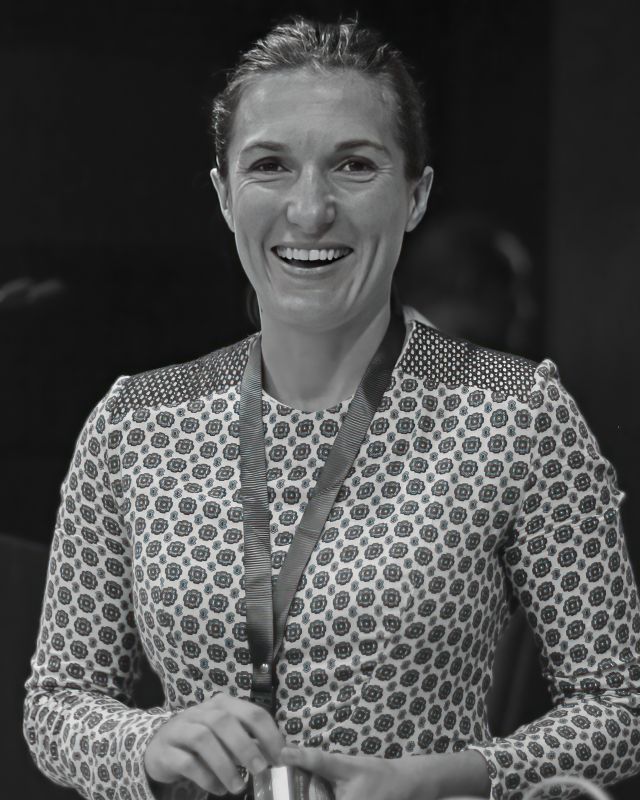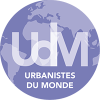Portrait

Noémie Fompeyrine - GLM 2015 - Project Officer at the Resilience Mission, General Secretariat of the City of Paris
Published on | Alumni Portraits
Portrait by Juliette Christophe
Can you give a brief overview of your background? What led you to pursue a career in the public service? Towards the resilience mission?
After obtaining my high school diploma, and before entering Sciences Po, I spent a year working in a social centre in a barrio joven in Lima, Peru. At that time, the Governing the Large Metropolis master’s programme did not exist, and I would not have referred to the activities of my neighbours then as “informal economy,” nor would I have dared to use the word “vulnerability” to describe the situations I was observing! However, my interest in access to education, health, transport, energy, and public services in general within large metropolises traces back to that experience.
Back in Paris, I continued my studies and undertook internships in my third year between Madrid, Paris, and Bangkok, with a company, a think tank, and a CNRS research centre. During my master's, my friends and I developed an association that organised events (festivals, conferences, debate evenings, screenings) and managed a web magazine to think about and celebrate urban cultures. It is still called "NOISE, The Sound of the City." This experience was also foundational and allowed me to acquire skills that are still useful to me.
I completed my final internship in the cabinet of the Deputy Mayor of Paris responsible for transport, travel, roads, and public space. There, I discovered the institution, the field of mobility, and the realm of politics. I chose to write a professional dissertation on the governance of night mobility in Paris. This initiative led me to delve deeper into a current topic, contributing to the cabinet's reflections on the matter, and connecting with individuals with whom I am still in contact professionally today. I would therefore advise, if the exercise still exists, current students to engage in it!
Following my internship, the director of the cabinet offered me a position. For a year, I followed and contributed to the emergence of several public policies: the organisation of the first two "car-free days" in Paris, the monthly pedestrianisation of the Champs-Élysées, a "car-free challenge," and the monitoring of various projects such as the transformation of the ring road, urban projects around major train stations, participatory budgeting, autonomous vehicle experimentation, and more. I thus had a role as both project coordinator, advisor to the elected official, and foresight on certain files.
In working on one of these projects, I met the Chief Resilience Officer of the City of Paris, who had been appointed a few months earlier and was looking for someone to assist him in developing an urban resilience strategy, as part of the "100 Resilient Cities" network. Since July 2016, I have been by his side, within the General Secretariat, the entity that coordinates operational departments and oversees major projects of the term.
The resilience of territories lies in their ability to face hazards and pursue their development objectives despite chronic crises (air pollution, climate change, social inequalities, etc.) and shocks (major flooding, heatwaves, terrorist attacks, etc.) that they endure. We have mobilised numerous stakeholders to assess the strengths and weaknesses of the Parisian territory, develop actions to enhance its resilience, and then write a strategy that was ultimately adopted by the Paris Council in September 2017. Since then, we have been supporting the administration in implementing these directives.
Can you describe your current activity, what you find stimulating or constraining?
My activity evolves alongside the programme led by the Resilience mission: from a role in designing and drafting a strategic document, I am gradually transitioning towards that of coordinating the mission and the projects that stem from it, which requires management, planning, steering, etc. Two constants remain in my activity: internal and external communication, and foresight on resilience issues and solutions. It is primarily about convincing others of the relevance of the concept and demonstrating its utility. What I find stimulating is that colleagues are responsive to the vision and method proposed. This is based on the logic of "multiple benefits," which allows for integrated projects: meaning that with one infrastructure, one process, one budget, and one timeline, we strive to achieve a maximum of development objectives (health, inclusion, climate adaptation, etc.). I appreciate this approach as it requires mobilising a wide array of stakeholders (all municipal departments, public and private actors in the territory, citizens, etc.) and revealing their expertise and resources. The Resilience mission is a young entity within the administration, taking on a role of "change management," with all that this implies in terms of energy to convince, propose alternatives, observe political, financial, administrative, and human issues, and engage with current events (the crises Paris is enduring, measures announced by the government, etc.). Adapting to constraints is the daily reality of a mission like ours!
What do you see as the fundamental differences between working in administration and working in a political cabinet at the Mayor's office in Paris? Do you envision continuing your career in this area?
Transversality is inherent in the activities of the Resilience mission and, more broadly, in the General Secretariat. It was less evident within a sectoral deputy cabinet, even though mobility and public space management are very transversal themes. This positioning allows for collaboration with an administration composed of thousands of agents and just as many areas of expertise, whereas work in a cabinet is more directed towards the elected official and the services directly impacted by their roadmap. I am also discovering, through practice, the functioning of public service, the codes of local public service, and the specificities of the Parisian administration, and I wish to continue learning in this framework.
Suzanne Chatelier - GLM 2013 - A journey focused on International Affairs and Sustainable Urbanism
Published on 07 November 2018
To begin with, could you give us a brief overview of your background before the GLM and explain the reasons that led you to this master’s programme? After…
Sonia Lemaitre - STU 2012 - Nexity
Published on 29 March 2018
Could you give a brief overview of your career path? After completing a literary preparatory class and the STU master's programme, I joined the strategic…
 English
English  Français
Français 




